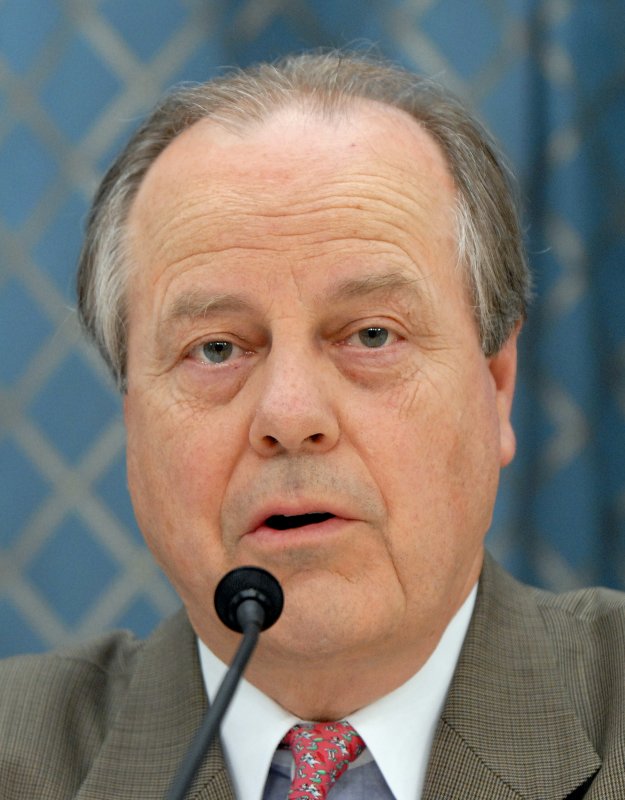Rep. Ed Whitfield, R-Ky., works to steer energy policy to reflect shale boom, though industry groups say the efforts fall far short of what's needed. (UPI Photo/Roger L. Wollenberg) |
License Photo
WASHINGTON, July 23 (UPI) -- The American Petroleum Institute said there is still more work to do as U.S. lawmakers work to craft legislation that matches the shale energy landscape.
"The last major energy legislation was crafted in 2007, and important changes are needed to unlock the full economic and security benefits made possible by America's energy revolution," API Executive Vice President Louis Finkel said in a statement.
A House energy subcommittee unanimously passed a measure to modernize U.S. energy infrastructure and "bolster America's energy security and diplomacy."
Lawmakers and industry supporters are pressing for new policies to reflect the gains in U.S. oil and natural gas production, drawn largely from shale basins in states like Texas and North Dakota.
API, which represents the interests of more than 600 energy companies, said the measure has many gaps yet to fill. By some estimates, the shale boom has the potential to create 2 million new jobs and add more than $400 billion to the national economy with the right laws in place.
"We're disappointed that the first draft of this bill doesn't yet include important bipartisan proposals to lift outdated restrictions on exports, expand access to domestic resources, and reform bureaucratic hurdles that stand in the way of infrastructure investments and trade with our North American neighbors," Finkel said.
In the Senate, Lisa Murkowski, R-Alaska, said she was frustrated with lack of funding necessary to modernize the Strategic Petroleum Reserve. Her ire followed support for a bipartisan Senate measure that would use SPR as a cash reserve to help keep the federal highway trust fund afloat.
Subcommittee Chairman Ed Whitfield, R-Ky., said the House measure was aimed at crafting a policy landscape that reflects what he described as an era of energy abundance. For the API, that means erasing 1970s legislation that places a ban on crude oil exports.
More exports and more access to reserve basins, supports of new policies say, will increase U.S. leverage overseas while at the same time as it stimulates the economy at home.
Energy and Commerce Committee Chairman Fred Upton, R-Mich., said debates in the House are about not only getting new legislation crafted, but getting it crafted right.















